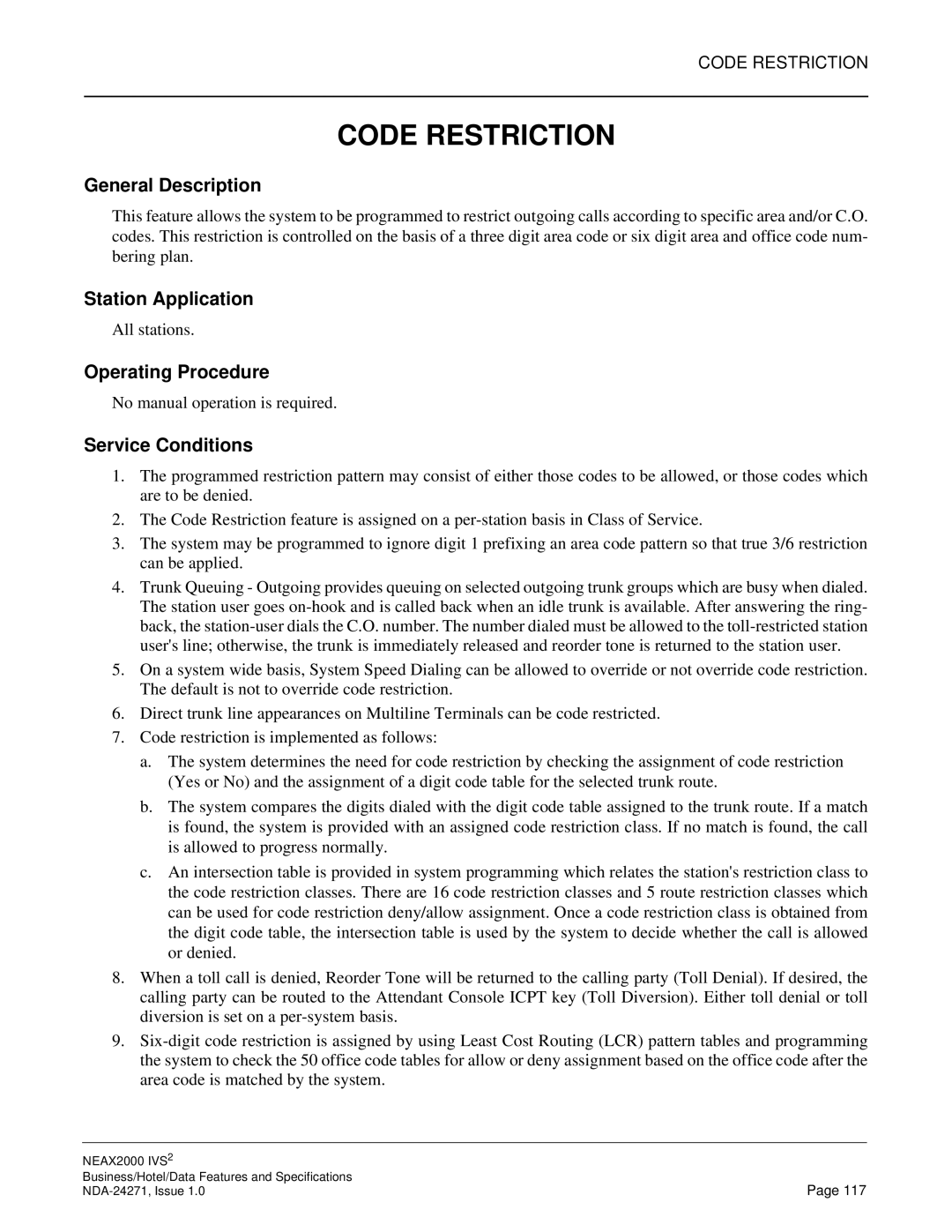
CODE RESTRICTION
CODE RESTRICTION
General Description
This feature allows the system to be programmed to restrict outgoing calls according to specific area and/or C.O. codes. This restriction is controlled on the basis of a three digit area code or six digit area and office code num- bering plan.
Station Application
All stations.
Operating Procedure
No manual operation is required.
Service Conditions
1.The programmed restriction pattern may consist of either those codes to be allowed, or those codes which are to be denied.
2.The Code Restriction feature is assigned on a
3.The system may be programmed to ignore digit 1 prefixing an area code pattern so that true 3/6 restriction can be applied.
4.Trunk Queuing - Outgoing provides queuing on selected outgoing trunk groups which are busy when dialed. The station user goes
5.On a system wide basis, System Speed Dialing can be allowed to override or not override code restriction. The default is not to override code restriction.
6.Direct trunk line appearances on Multiline Terminals can be code restricted.
7.Code restriction is implemented as follows:
a.The system determines the need for code restriction by checking the assignment of code restriction (Yes or No) and the assignment of a digit code table for the selected trunk route.
b.The system compares the digits dialed with the digit code table assigned to the trunk route. If a match is found, the system is provided with an assigned code restriction class. If no match is found, the call is allowed to progress normally.
c.An intersection table is provided in system programming which relates the station's restriction class to the code restriction classes. There are 16 code restriction classes and 5 route restriction classes which can be used for code restriction deny/allow assignment. Once a code restriction class is obtained from the digit code table, the intersection table is used by the system to decide whether the call is allowed or denied.
8.When a toll call is denied, Reorder Tone will be returned to the calling party (Toll Denial). If desired, the calling party can be routed to the Attendant Console ICPT key (Toll Diversion). Either toll denial or toll diversion is set on a
9.
NEAX2000 IVS2 |
|
Business/Hotel/Data Features and Specifications | Page 117 |
